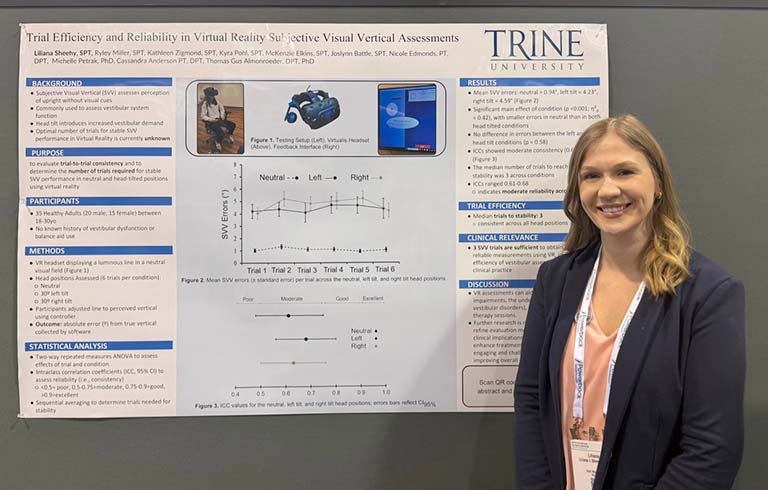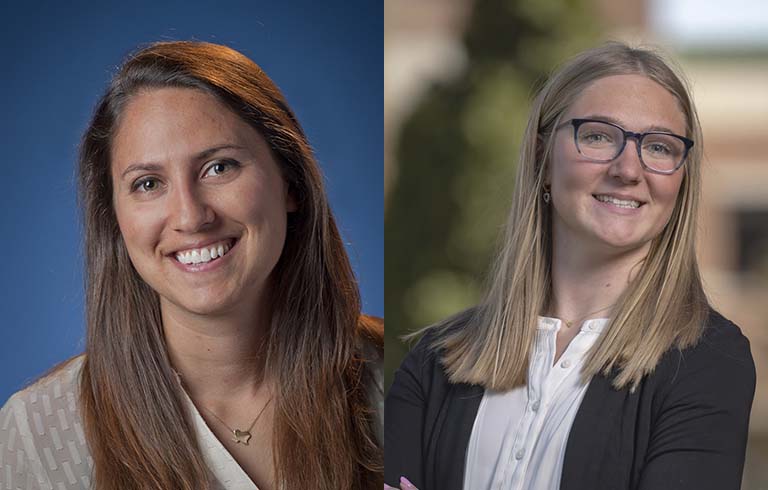"Insects are the most reliable scientific means of establishing time intervals of
death." That was the lesson delivered Friday afternoon at Trine University by Dr.
Neal Haskell, an expert and founder of forensic entomology.
More than 100 students, faculty, law enforcement and community members listened as
Haskell explained how he relies on the life cycles of insects to determine time and
location of death. It's also clear that Dr. Haskell employs humor as he recalls tasks
that many might consider grim, macabre or just plain awful.
As he spoke about his work as an expert witness, he interjected bits of humor – often
at the expense of lawyers. In one case, a lawyer asked him to tell about the oldest
case he has faced. Haskell mentioned a case in which four bodies, all with the right
sides of their skulls smashed. He determined death likely occurred between June and
September based on the insect evidence. Taking insect activity into account, he narrowed
it to June or July when the insects would have been most active. When the lawyer implied
the case was not very old, Haskell replied it was in 750 AD; that brought laughs from
the audience.
He has testified as an expert witness in numerous trials across the world and country,
including the 2011 Florida trial of Casey Anthony, who was accused of murdering her
toddler daughter, Caylee. He showed images of Caylee, Casey Anthony's white Pontiac
that was found abandoned and trash found in the car's trunk. Haskell brought the
trash to his Indiana lab to determine whether it contained anything that would have
attracted insects. He determined the toddler's dead body, not the trash, lured the
insects.
The Trine University Future Forensic Scientist (TUFFS) club made possible Haskell's
speech at Trine. Carol Absher-Vaughn, TUFFS president, extended the invitation. He
encouraged the forensics students to get business cards for networking and to "come
to Rensselaer when you graduate" to pursue graduate studies with him and his team.
When he fielded questions, at least two times he asked the student posing the question
if she would like to work on a project or apply for a grant to study an idea – stressing
the need for business cards.
Haskell is well-known in the forensic science community as one of the founders of
forensic entomology in criminal investigation. Entomology refers to insects and forensics
refers to investigation into the cause of death. He co-authored the first textbook
on forensic entomology for law enforcement and has been hired by hundreds of law enforcement
agencies, including the FBI and Indiana State Police, as a forensic entomology consultant.
Dr. Haskell is a faculty member in the biology department at Saint Joseph's College
in Rensselaer, Ind. He has received 11 grants for his research.
His work has been featured on PBS, A&E, The History Channel and The Learning Channel
and in Popular Science and Discovery magazines. Dr. Haskell's work has also been published
in several major journals and books and helped inspire the popular television show
"CSI," short for crime scene investigators. The book "Dead Reckoning" by Dr. Michael
Baden and Marion Roach devotes a full chapter to Dr. Haskell's research and training
in Rensselaer and interesting case studies.
After Haskell was introduced, he asked Dr. Ruth Kohlmeier, a forensic pathologist
who teaches at Trine and serves as advisor of TUFFS, to join him on the stage. He
presented Kohlmeier with a copy of his book, "Entomology & Death: A Procedural Guide,"
and a T-shirt that pokes fun at the role of maggots.
Here's the buzz
Three interesting insect facts from Haskell's talk:
Forty percent of organisms on Earth are bugs.
Nearly 1 million insects are known.
There may be more than 10 million insects yet to be found and named.


